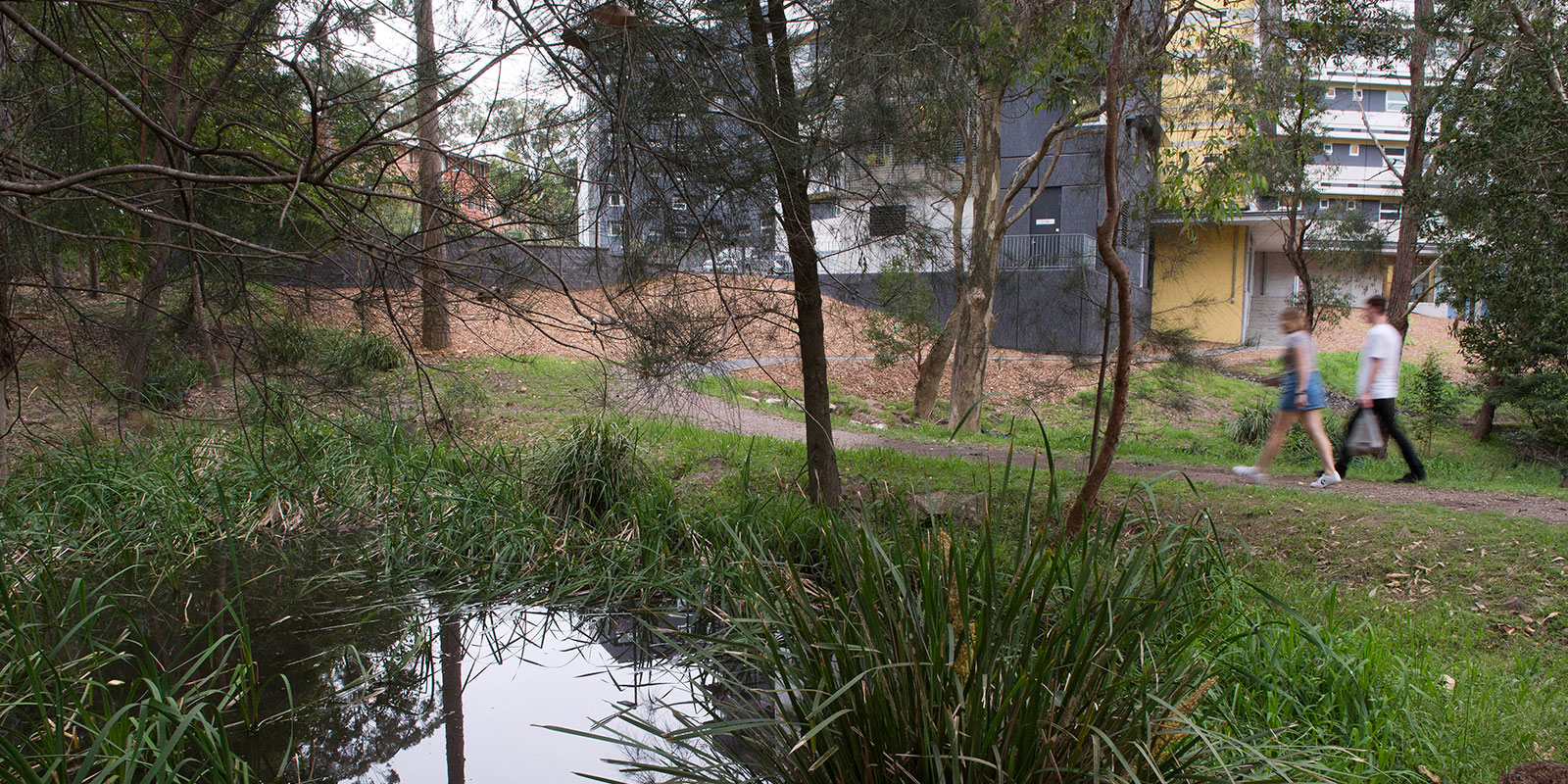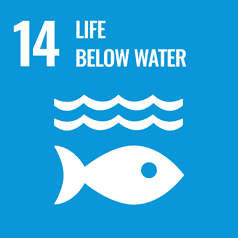

Goal 14:
Life Below Water
Maintain Ecosystems and Their Biodiversity
The University of Newcastle is directly engaged in both research and community-based initiatives to protect and extend biodiversity in threatened ecosystems.
In line with our commitment to sustainable development and environmental stewardship, we have strengthened our research and engagement efforts across Australia and the Pacific. Notably:
Pacific Node – Biodiversity and Ecosystem Resilience
In 2024, the University expanded its collaboration with Pacific partners through the establishment of the Pacific Node in Apia, Samoa, in partnership with the Secretariat of the Pacific Regional Environment Programme (SPREP).
This initiative provides a flexible framework to:
- Deliver collaborative research between academia, industry, government and communities,
- Address national priorities such as:
- Ecosystem and biodiversity protection,
- Climate resilience,
- Waste management and pollution control,
- Environmental governance.
The Node is guided by the University’s Pacific Research Roadmap, which aims to support long-term ecological health and community well-being.
» Learn more about the Pacific Node
Examples of Ecosystem-Focused Work in 2024
- Mangrove Research & Engagement (Samoa)
In 2024, our researchers and students participated in the Moata’a Living Lab initiative in Samoa. This project focuses on mangrove ecosystem conservation, integrating local knowledge with scientific monitoring to protect habitats that support biodiversity and coastal resilience. - Microplastics and Marine Pollution Studies
Through the New Colombo Plan, University of Newcastle students undertook field research on microplastic pollution in Samoan waterways, contributing to regional understanding of how marine contaminants affect ecosystem health and aquatic biodiversity. - Hunter Region Ecosystem Restoration
Closer to home, University researchers continue to work with government and local industry partners on coastal and wetland restoration projects across the Hunter region — particularly in saltmarsh, mangrove and estuarine environments facing urbanisation pressures. - Marine Invaders: This exhibition was held from Wednesday 27 November 2024 - Saturday 7 December 2024. Marine Invaders is an educational card game developed by Elizabeth Copeland that highlights the impact of invasive marine species and ways we can support native species to thrive.
- SRMT3060 - Restoration Ecology: The United Nations General assembly have declared 2021 – 2030 as the UN Decade on Ecosystem Restoration and that restoration is fundamental to sustainable development, mitigating and adapting to climate change, enhancing food security as well as water and biodiversity conservation. SRMT3060 explores the science upon which actions to assist the recovery of degraded, damaged or destroyed ecosystems should be based. Real-world degradation problems and restoration solutions will be examined to equip students with the knowledge and skills for entry into careers involving ecological restoration policy and/or practice. All lectures are recorded, and the practical component consists of face-to-face workshops and compulsory fieldwork sessions.
These initiatives demonstrate our deep commitment to supporting ecosystems under threat — through direct action, policy engagement, and international partnership. We continue to align our work with global and regional biodiversity goals, ensuring our research delivers measurable impact for people and the planet.
Moata'a Living Lab
The University collaborates with partners in Samoa to conserve and regenerate the local mangrove environment, which is critical to the region’s culture and economy.
The Moata'a Living Lab is a community-led environmental education and eco-tourism demonstration site aimed at building the resilience of the Moata’a community and improving the ecosystem and socio-economic wellbeing of villagers.
Academics and students from the University of Newcastle and the National University of Samoa work with alongside staff from the Secretariat of the Pacific Regional Environment Programme and the Samoan Ministry of Natural Resources and Environment to support the Living Lab.
The collaboration is part of the University's Pacific Node initiative, which aims to enhance capacity in the region, with a focus on environment and climate change resilience, ecosystem protection, waste management and pollution control, environmental governance, public health, and inclusive education.
The University of Newcastle acknowledges the traditional custodians of the lands within our footprint areas: Awabakal, Darkinjung, Biripai, Worimi, Wonnarua, and Eora Nations. We also pay respect to the wisdom of our Elders past and present.
